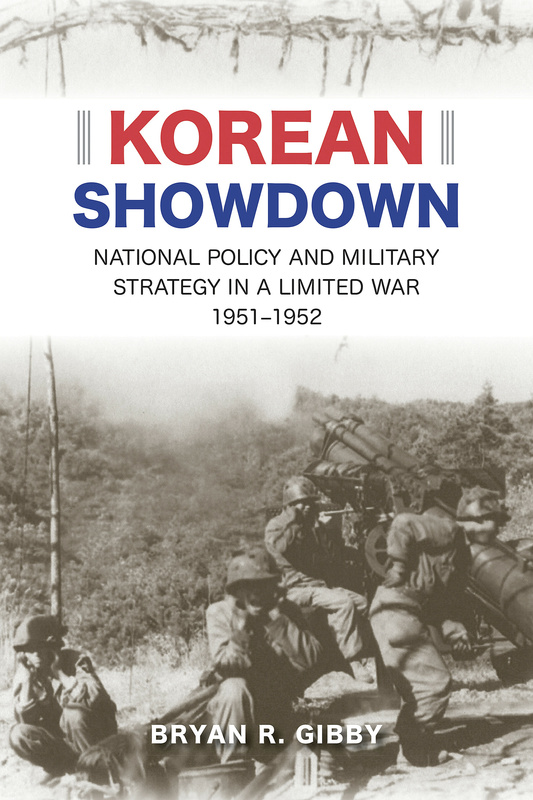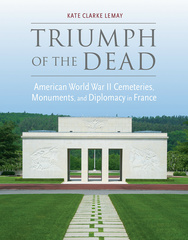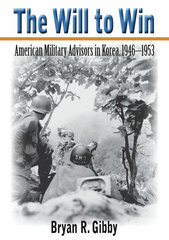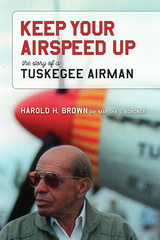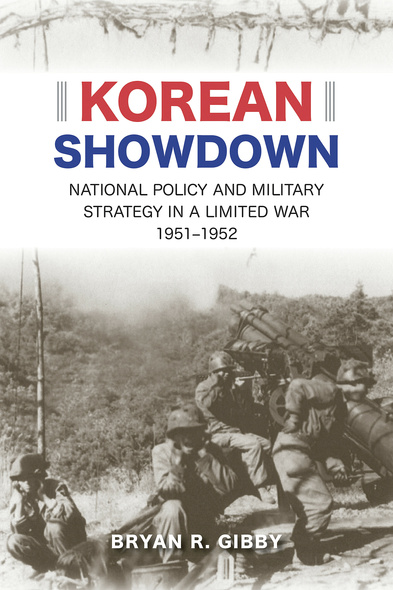
408 pages, 6 x 9
8 B&W figures - 12 maps - 11 tables
Hardcover
Release Date:12 Jan 2021
ISBN:9780817320737
Korean Showdown
National Policy and Military Strategy in a Limited War, 1951–1952
University of Alabama Press
A historical analysis of the policies and military strategies applied during the Korean War stalemate period
Winner of the 2023 Andrew F. Krepinevich Jr. Writing Award
Korean Showdown: National Policy and Military Strategy in a Limited War, 1951–1952 takes a holistic and integrative approach to strategy, operations, and tactics during the Korean War’s stalemate period and demonstrates how these matters shaped each other and influenced, or were influenced by, political and strategic policy decision-making. Bryan R. Gibby offers an analysis of the major political and military decisions affecting how the war was conducted operationally and diplomatically by examining American, Chinese, North Korean, and South Korean operations in the context of fighting a limited war with limited means, but for objectives that were not always limited in scope or ambition. The foundational political decision was Harry Truman’s voluntary repatriation policy, which extended the war by up to eighteen months. Its military counterpart was the American-led Operation Showdown, the last deliberate military offensive to coerce concessions at the negotiation table. Showdown’s failure (and the Communists’ own equally disappointing military efforts) opened up new avenues for solving the war short of a militarily imposed solution.
Gibby’s research draws on primary sources from American, Korean, and Chinese archives and publications. Many of these sources have not yet been mined in diplomatic and military histories of the Korean War. This innovative book also addresses a significant gap in the study of Korean military operations—the linkage between ground and air pressure campaigns, as well as the many Chinese and American operations conducted to establish negotiation positions. Gibby also explores many political and propagandist developments that assumed great importance in the summer of 1952, such as prisoner of war riots, the bombing of hydroelectric dams, and the South Korean constitutional crisis, which significantly influenced American and Chinese military decision-making.
Ultimately, this volume serves as a cautionary analysis of the limits of force, the necessity to understand an adversary, and the importance of strategic consensus. It also offers an effective case study on an underappreciated period of civil-military tension during the Cold War and on how civilian politicians and military leaders must collaborate to determine a realistic and effective strategy.
Winner of the 2023 Andrew F. Krepinevich Jr. Writing Award
Korean Showdown: National Policy and Military Strategy in a Limited War, 1951–1952 takes a holistic and integrative approach to strategy, operations, and tactics during the Korean War’s stalemate period and demonstrates how these matters shaped each other and influenced, or were influenced by, political and strategic policy decision-making. Bryan R. Gibby offers an analysis of the major political and military decisions affecting how the war was conducted operationally and diplomatically by examining American, Chinese, North Korean, and South Korean operations in the context of fighting a limited war with limited means, but for objectives that were not always limited in scope or ambition. The foundational political decision was Harry Truman’s voluntary repatriation policy, which extended the war by up to eighteen months. Its military counterpart was the American-led Operation Showdown, the last deliberate military offensive to coerce concessions at the negotiation table. Showdown’s failure (and the Communists’ own equally disappointing military efforts) opened up new avenues for solving the war short of a militarily imposed solution.
Gibby’s research draws on primary sources from American, Korean, and Chinese archives and publications. Many of these sources have not yet been mined in diplomatic and military histories of the Korean War. This innovative book also addresses a significant gap in the study of Korean military operations—the linkage between ground and air pressure campaigns, as well as the many Chinese and American operations conducted to establish negotiation positions. Gibby also explores many political and propagandist developments that assumed great importance in the summer of 1952, such as prisoner of war riots, the bombing of hydroelectric dams, and the South Korean constitutional crisis, which significantly influenced American and Chinese military decision-making.
Ultimately, this volume serves as a cautionary analysis of the limits of force, the necessity to understand an adversary, and the importance of strategic consensus. It also offers an effective case study on an underappreciated period of civil-military tension during the Cold War and on how civilian politicians and military leaders must collaborate to determine a realistic and effective strategy.
Bryan Gibby’s latest offering, Korean Showdown: National Policy and Military Strategy in a Limited War, 1951–1952, delivers one of the most soundly researched, comprehensive and in-depth analyses of the Korean War published to date. . . . Readers will find this book to be an excellent and well-documented work that sets a standard for the historian and casual reader alike. I highly recommend this scholarly effort to both soldiers and laymen who engage in a study of the Korean War as a superb historical account of that conflict. It will become a staple reference work for students of both the Korean War and the Cold War.’
— Association of the United States Army Book Review
‘Gibby examines military operations both on the ground and in the air . . . which are often overlooked in many studies of the conflict. He concludes that in order to successfully wage war, a nation’s civilian and military leadership must work together to establish clear political objectives and a workable military strategy to accomplish those goals. Most importantly, political objectives should drive military operations, not the other way around as often happened in Korea. The author asserts that this was a primary factor in leading to a stalemate in Korea, on the battlefield and at the negotiation table. Recommended.’
—CHOICE
‘Korean Showdown links the tactical, operational, and strategic levels for the two Koreas, the US, and the People’s Republic of China. For the first time in an English language work, this book shows the Chinese side of this dynamic and how it interacted with the American side on all three levels.’
—William M. Donnelly, author of Under Army Orders: The Army National Guard during the Korean War
Dr. Gibby offers one of the best US military history studies on the Korean War by successfully examining how the US Army applied total war experience and training to a new limited war and accomplished Washington’s Cold War political goal in East Asia. A milestone in US military history research of the Korean War.
He focuses on the US war strategy and operations of 1952, the most forgotten year of the ‘forgotten war.’ His well-researched study provides a better understanding of the military historiography of the Korean War and essential to understanding general trends in military cultures of the United States. It is highly recommended.’
—Xiaobing Li, author of A History of the Modern Chinese Army
‘Bryan Gibby has made a major contribution to military history with this detailed description of an often-forgotten year in an often-forgotten war. Yet this experience trying to apply coercion in a limited war 70 years ago is still very relevant to the problems of contemporary war termination. Scholars and soldiers, as well as policy makers, will profit from reading this thoughtful book.’
—Conrad C. Crane, author of American Airpower Strategy in Korea, 1950-1953
Bryan Gibby’s latest offering, Korean Showdown: National Policy and Military Strategy in a Limited War, 1952–1952, delivers one of the most soundly researched, comprehensive and in-depth analyses of the Korean War published to date. . . . It will become a staple reference work for students of both the Korean War and the Cold War.’
—Army Magazine
Bryan R. Gibby is associate professor and acting deputy head of the Department of History at the United States Military Academy at West Point. A colonel in the US Army, Gibby is a combat veteran and former battalion commander. He is author of The Will to Win: American Military Advisors in Korea, 1946–1953, which was recognized with the Distinguished Writing Award by the Army Historical Foundation.

